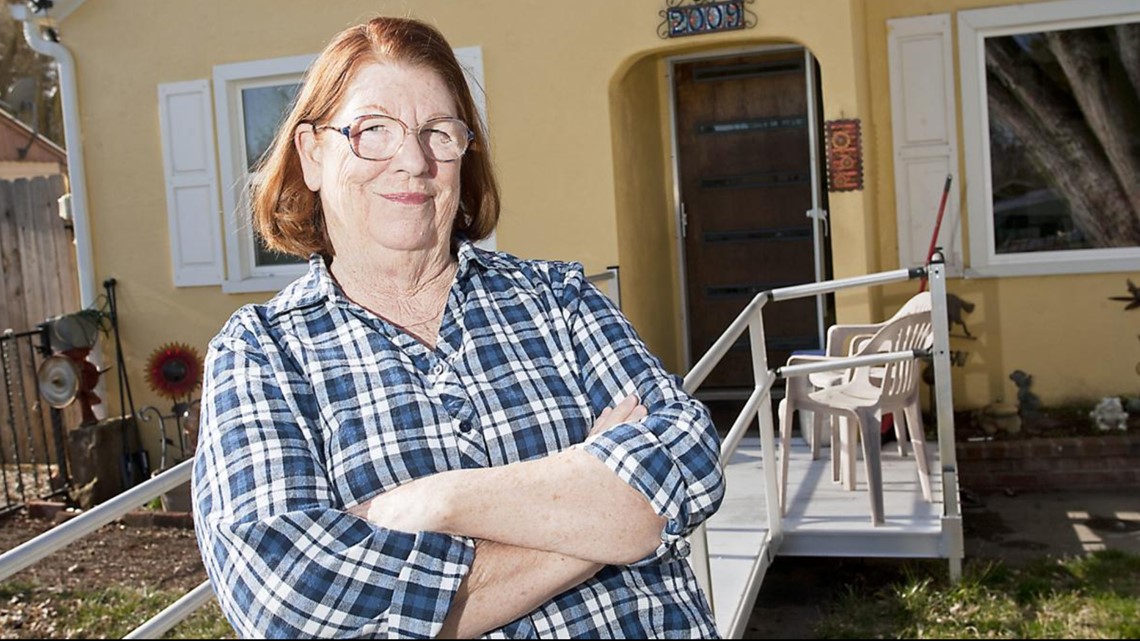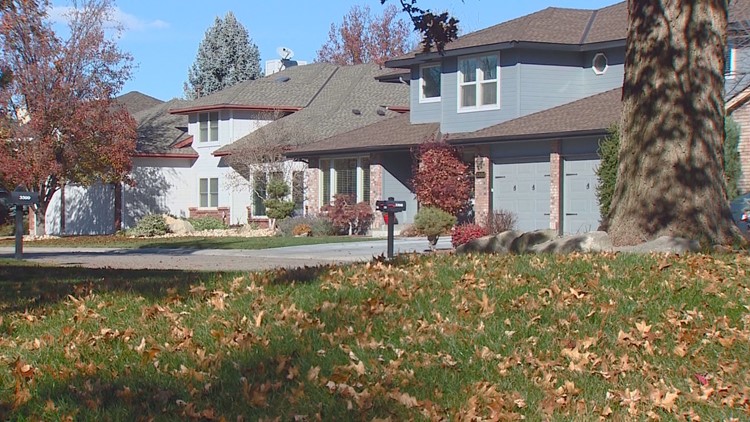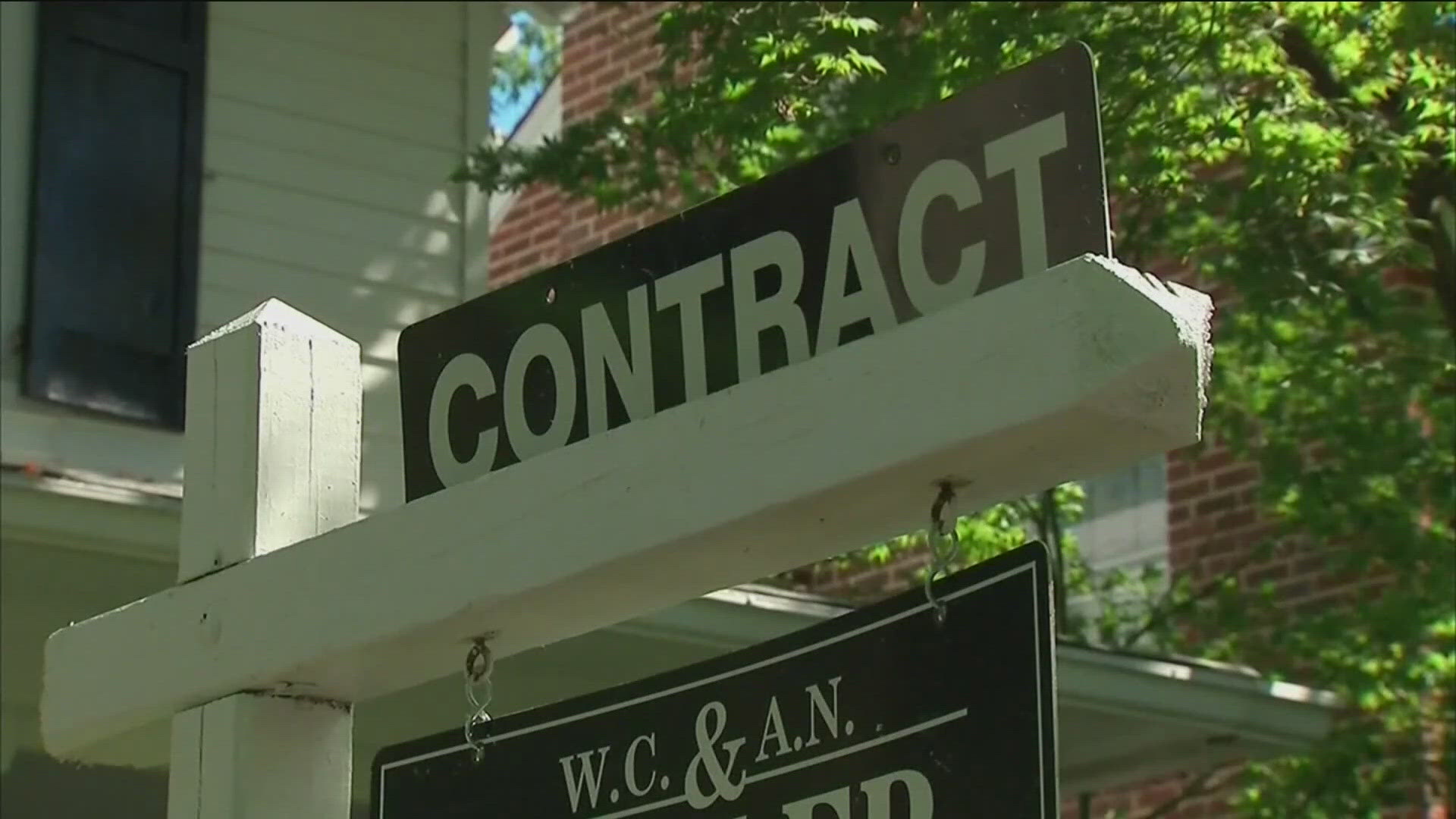BOISE, Idaho — Jackie Roe and her husband have lived on the Boise Bench for 53 years and paid off their house long ago, but that doesn’t mean it’s always affordable to live there.
As the Treasure Valley’s population has boomed and housing inside Boise city limits has become increasingly in demand, home values have shot through the roof, and property tax bills have climbed along with them.
The retired couple doesn’t have to worry about monthly house payments, but her property tax bill in the past three years has become a worrisome expense.
When she and her husband purchased their 800-square-foot home on Latah Street, it was $6,500 and the property taxes were a bit less than $100 per year. Now, the same house on a quarter acre has climbed to a value of $223,000, and the couple paid $1,486 in property taxes in 2019.
Roe said she and her husband have been able to sell off expensive tools and other belongings when they needed help making a tax payment, but that is not a sustainable strategy.
“We’ve run out of big things mainly to sell,” she said. “Even before, when the taxes came around, we would just sell something, but we were fortunate to have something to sell.”


They are far from alone.
As Idaho's home values lead the nation in growth, local leaders and state legislators are discussing ways to ease the tax burden on residents, especially long-term residents like Roe who were not anticipating the steep tax hike. Republicans statewide are pushing for reductions in spending from local governments, while Democrats are hoping for more assistance from the state to help relieve the tax burden on those at the bottom of the income bracket.
Boise is the state's epicenter of the housing market boom. Mayoral candidates at nearly every debate or town hall last year fielded questions about how rising property taxes were pricing low-income and elderly homeowners out of the city.
Boise City Council has taken the maximum 3% property tax increase allowed under state code every year for the past several years, on top of revenue growth from new construction and annexations.
Some candidates, like former Mayor Brent Coles and Adriel Martinez, said they would freeze city spending and stop property tax increases. Others, like former Mayor Dave Bieter and newly elected Mayor Lauren McLean, favored looking to the Idaho Legislature to increase funding for property tax relief programs instead.
So far during this legislative session, the only bills formally introduced around property tax relief would severely curb local governments' ability to raise tax collections every year, but other proposals could still come forward.
RELATED: Affordable shipping container homes in Boise offer a new beginning for those struggling with housing
RISING VALUES
In March of last year, Idaho's year-over-year jump in home prices was the steepest in the country, according to Zillow data featured in a report by RefiGuide.org. The state's home price growth of 17.2% was "driven by strong demand in the Boise market," the report states.
Over the past two decades, single-family home values in Ada County have nearly tripled, from $109,500 in 2000 to $294,700 in 2019, according to Ada County Assessor Bob McQuade
The increase in property taxes has been tough for people countywide, McQuade said, but some neighborhoods were hit harder than others. The Boise Bench, where Roe lives, saw a 20% increase in assessed home values last year. The North End, which has long been a coveted neighborhood due to its historic homes, large trees and proximity to the Foothills and downtown Boise, saw an 18% increase.
McQuade said the county conducted a focus group around property taxes and many of the participants were dealing with tighter and tighter budgets every year due to rising assessments.
“Most of them said they’re not there yet where they’re really having a tough time paying their property taxes, but they’re getting closer and closer to the margin and they see that coming,” he said.
Ada County collects all of the property taxes in the county and redistributes the vast majority of it to the various taxing districts, like the cities, school districts and highway district. Of all of the cities, Boise has by far the highest rate of taxation per person with $693 per person last year, according to McQuade. In comparison, the city of Eagle levied $132 taxes per person in 2019.
Under Bieter’s 16-year tenure running Boise, the city council took the maximum 3% tax increase it was allowed nearly every year. City officials said these increases were necessary in order for city infrastructure and services to keep pace with growth, but residents like Linnae Costello said she would prefer the city stay within its means instead of continually jacking up her property taxes.
When she purchased her home on the south end of the Boise Bench in 1995, it went for $111,800 and she paid $1,080 in property taxes. Last year her home was worth $260,600 and her property taxes have doubled to $2,179. Of that, $915.91 went to the city of Boise, and the rest went to other taxing districts.
Although Costello has had to adjust her household budget to make sure her property taxes are paid, she isn’t under intense financial pressure. However, she does with the city would be more willing to keep property taxes from increasing year after year after year.
“I was totally dismayed during the recession when people were losing their jobs, losing their homes and the city just kept taking the maximum amount of property taxes they could,” she said.
In past years, the Boise City Council hasn’t had an in depth discussion considering the idea of not taking the 3%. In budget deliberations over the past two years, city staff presented the proposed budget to council assuming the city would take the 3% increase. Council did not discuss at length whether or not taxes should be increased to the maximum.
McLean said one of her first moves as mayor will be to launch a more robust community input process for the budget. This will allow residents to weigh in on different scenarios for tax revenue and what trade-offs city officials could possibly make. As of now, city council has not decided how much it will increase property taxes next year.
The Idaho Legislature is also a major factor in this decision. Speaker of the House Scott Bedke, R-Oakley, signaled on the first day of the session last month that the rising property tax burden is a major issue he and other party leaders would like to tackle this year.
House Majority Leader Mike Moyle, R-Star, has introduced two pieces of legislation to address the issue, which are opposed by McLean, Nampa Mayor Debbie Kling and Meridian Mayor Robert Simison.
These two proposals would freeze property tax increases statewide for a year and prohibit cities from increasing tax collection due to new construction. Moyle argues removing tax increases for new construction would help keep taxes low for existing residents and not drive them out of their homes, but McLean, Kling and Simison say it will make it even more difficult to pay for the resources needed to accommodate all of the new residents.
A hearing on these bills has not yet been scheduled.
In the meantime, Boise’s housing market shows no signs of slowing down, leaving residents like Roe watching their mailboxes and waiting for their next assessment to see how much of a hit they will take on their taxes next year.
More from our partners at The Idaho Press: Ahead of P&Z vote, residents of Ridenbaugh Place in Boise make case for affordable housing
Watch more 'Growing Idaho':
See the latest growth and development news in our YouTube playlist:



